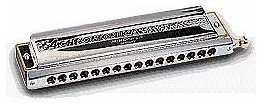
Be careful who you idolize, and how you idolize them. That is the message of Frank Morgan's life. He had an all-consuming admiration for Charlie Parker, and learned how to blow be-bop alto like the Bird. He also took up the Bird's bad habits, and ended up in and out of prison due to his use of heroin. From the late '50's through the mid'80's, Frank was off the scene due to incarceration - robbery, drug posssession, etc. He would get out, do another crime, and go right back in. He finally played his first New York club engagement in 1986; he got clean and stayed clean.
Frank gave us 20 years of great jazz; he found out he had cancer just last month and he went down quick. here is the Washington Post obit.....
Frank Morgan: 1933 - 2007
Noted jazzman who made a comeback
Heir to the hard-bop style of Charlie Parker had 30-year hiatus caused by addiction
By Adam Bernstein
The Washington Post
December 19, 2007
Frank Morgan, 73, a jazz saxophonist of impeccable ability, whose claim to the mantle of the celebrated Charlie Parker was clouded by his heroin addiction, died Dec. 14 at his home in Minneapolis. He had colon cancer and kidney failure.
Mr. Morgan, whose father was a guitarist with the vocal group the Ink Spots, was considered in his teens a promising interpreter of hard bop, a swing style of lightning pace.
Despite a 30-year absence from performing caused by addiction, he was remembered as someone who could bring emotion to the frantic sound in a way few had mastered since Parker. Parker, one of the great geniuses of saxophone, died from drug abuse at 34 in 1955.
Trumpeter Wynton Marsalis once said of Mr. Morgan's playing: "What comes out of his horn is soulful, full of fire and timeless."
In 1955, Mr. Morgan debuted as a solo artist with a beautifully made hard bop collection, but for the next three decades he was sidelined by heroin addiction and arrests. He served prison terms in California penitentiaries and formed a small ensemble at San Quentin prison in the 1960s with another addict and sax player, Art Pepper.
He credited a conversion to Islam during the end of what he called his "prison career" as a turning point for the better as well as an acclaimed series of performances at New York's Village Vanguard jazz club in 1986. A year earlier, he cut his second album, "Easy Living," which won praise.
With a bebop revival under way in jazz, Mr. Morgan made the most of his second chance. He said he was able to wean himself off drugs through methadone.
He was leader on more than a dozen albums. Among those he played with were Marsalis, pianists McCoy Tyner and Hank Jones, guitarist Kenny Burrell and singer Abbey Lincoln.
As a youth, he played the guitar but switched to alto saxophone after his father took him to hear Charlie Parker in Detroit. The younger Mr. Morgan said he began copying Parker's drug habit in hopes of channeling his talent. He was a full-blown addict when they met again a few years later.
In 1987, New Yorker writer George Trow collaborated with Mr. Morgan on a musical about his life, "Prison-Made Tuxedos," that ran off-Broadway in 1987. But Mr. Morgan, who performed in the show, expressed ambivalence about having to relive those years every night.
"I mean, I want to remember it, but I didn't want to dwell on it and deal with it again every night," he said. "I saw a lot of people killed. I'm out of that now."
Once asked why so many jazz musicians became addicts, he replied: "It's about being hip. Jazz musicians would rather be dead than not be hip."



No comments:
Post a Comment